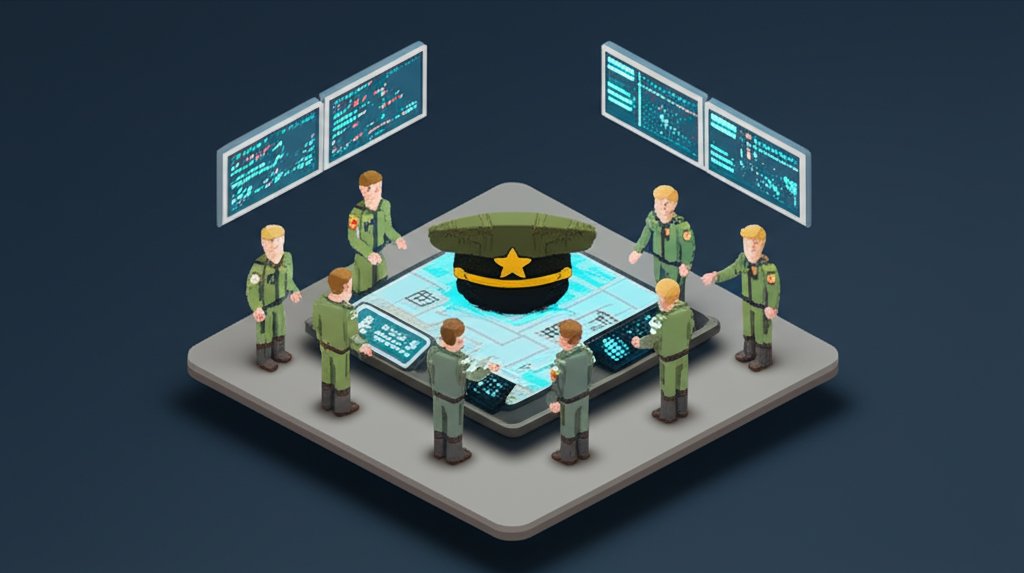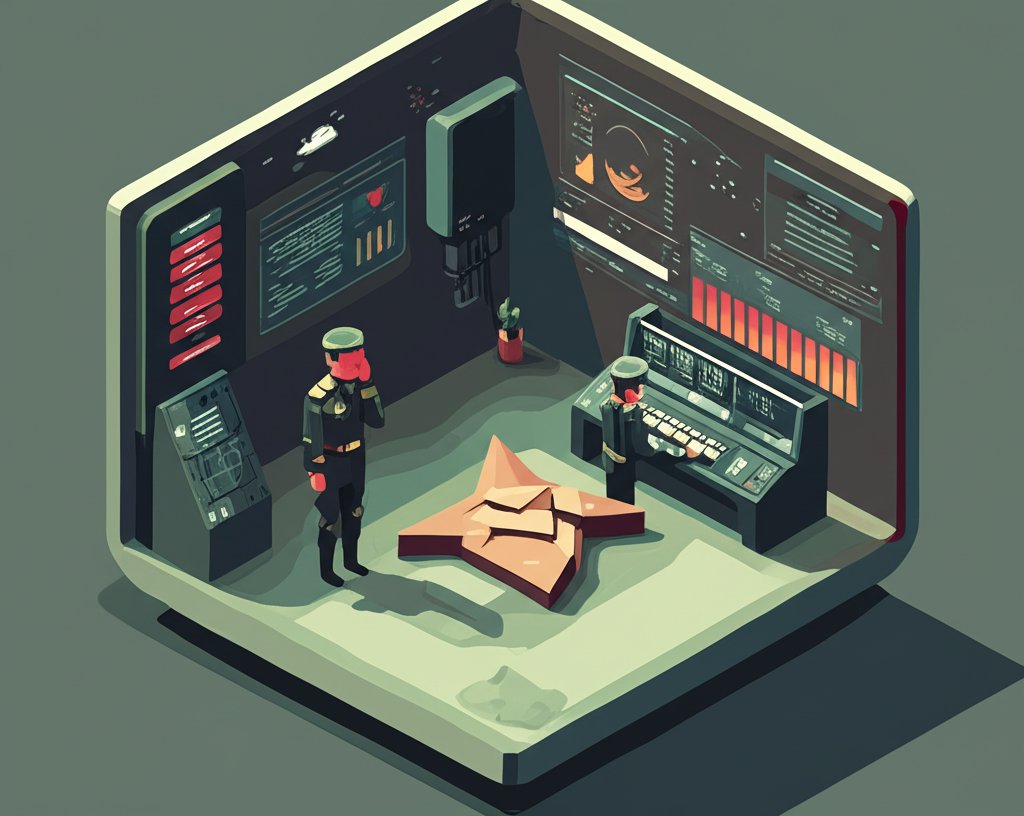The annals of history shimmer with the brilliance of military commanders whose strategic genius reshaped nations and defined eras. Yet, beneath the polished armor and heroic legacies often lies a darker truth: a profound personal turmoil that either fueled their triumphs or ultimately precipitated their downfall. These aren’t just figures from history books; they are vivid examples of troubled military commanders, individuals whose internal battles were as fierce, if not more so, than any they fought on the battlefield. This article delves into the captivating, often tragic, paradox of these figures, exploring how their exceptional talents intertwined with their deep-seated flaws, offering invaluable lessons on military leadership from the most unlikely sources. We will uncover the intricate dance between strategic mastery and psychological vulnerability, examining the lives of brilliant military commanders whose personal struggles illuminate the enduring complexities of power, ambition, and the human condition.
Defining the Paradox: Brilliant Yet Troubled Military Commanders
To understand the unique category of troubled military commanders, we must first dissect the two core components: “brilliance” and “trouble.” These aren’t simplistic labels but complex facets that profoundly influenced their actions and legacies as historical military leaders.
What Makes a Commander “Brilliant”?
The hallmark of brilliant military commanders extends far beyond mere battlefield victories. It encompasses a constellation of traits that elevate them above their peers:
- Strategic Vision: The ability to foresee geopolitical shifts, anticipate enemy movements, and formulate long-term campaign goals that transcend immediate skirmishes.
- Tactical Acumen: Mastery over the art of war, including innovative battlefield maneuvers, effective troop deployment, and the ability to adapt to fluid situations.
- Logistical Prowess: The genius to organize and sustain vast armies, ensuring supply lines, communication, and resource management—often in hostile environments.
- Inspirational Leadership: The charisma to motivate troops, instill loyalty, and maintain discipline, even in the face of daunting odds.
- Decisiveness Under Pressure: The capacity to make critical, often life-or-death, decisions swiftly and confidently amidst chaos.
These are the qualities that enabled military commanders like Alexander the Great or Napoleon Bonaparte to conquer vast territories and etch their names into history.
The Shades of “Troubled”: More Than Just Flaws
The “trouble” in troubled military commanders is a multifaceted beast. It can manifest in a spectrum of ways, ranging from personality quirks to severe psychological conditions, all impacting their capacity for military leadership:
- Excessive Ambition and Hubris: An insatiable desire for power or glory that pushes boundaries, ignores warnings, and leads to overextension.
- Personal Vices: Addiction (alcohol, drugs), gambling, or chronic promiscuity that impairs judgment or creates public scandal.
- Mental Health Issues: Depression, paranoia, anxiety, or uncontrolled rage that destabilizes their decision-making and temperament.
- Moral and Ethical Compromises: A willingness to disregard conventional ethics for strategic gain, leading to atrocities or internal conflict.
- Deep-Seated Insecurities: Despite outward confidence, an underlying sense of inadequacy that drives reckless behavior or a constant need for validation.
These internal struggles, often hidden from public view, were not merely footnotes to their careers but integral forces shaping their command, sometimes leading great historical military leaders to catastrophic failures.
Why the Intersection Matters in Military Leadership
The confluence of brilliance and trouble is particularly potent in military leadership. Unlike other professions, the stakes are existential: national security, the lives of thousands, and the course of history. A commander’s personal demons, when unchecked, can translate directly into strategic blunders, a demoralized army, or a lost war. Understanding this dynamic is crucial for dissecting the true effectiveness and ultimate legacy of many military commanders throughout time.
The Psychological Crucible: Why Leaders Falter
The intense environment of military leadership often acts as a crucible, forging some into legends while breaking others. Even the most brilliant military commanders can succumb to the extraordinary pressures and temptations inherent in their roles, revealing the human frailties that make them troubled military commanders.
The Burden of Command: Pressure Cooker Environments
Military command is an intensely isolating and stressful endeavor. Leaders are constantly under pressure to make decisions with imperfect information, often with lives hanging in the balance. This sustained mental and emotional load can exacerbate pre-existing vulnerabilities or create new ones:
- Decision Fatigue: The sheer volume of critical choices can lead to impaired judgment.
- Isolation of Power: Commanders, by necessity, often maintain a degree of distance from their subordinates, which can foster loneliness and distrust.
- Moral Injury: Witnessing or ordering horrific acts of war can take a profound psychological toll, leading to guilt, PTSD, or a hardening of empathy.
Unchecked Ambition and Hubris: The Path to Downfall
Ambition is often a necessary driver for military commanders to achieve greatness. However, when it morphs into unchecked hubris, it becomes a dangerous flaw. The line between confidence and megalomania is thin, and many historical military leaders have stumbled across it, often with disastrous results. This hubris can lead to:
- Overextension: Taking on too many objectives or underestimating opponents, believing their genius is invincible (e.g., Napoleon’s invasion of Russia).
- Ignoring Counsel: Disregarding warnings or advice from subordinates, convinced of their own superior judgment.
- Alienating Allies: Arrogance can push away crucial support systems, isolating the leader when they need collaboration most.
Personal Demons: Addiction, Mental Health, and Unconventional Traits
Some troubled military commanders grappled with more direct personal demons. These could be deep-seated psychological issues or habits that compromised their effectiveness:
- Alcoholism or Substance Abuse: Used as a coping mechanism for stress, these can impair judgment and lead to erratic behavior. Ulysses S. Grant, while ultimately a successful general, struggled with alcohol early in his career.
- Uncontrolled Temper: Figures like George S. Patton or even Alexander the Great were known for explosive rages that, while sometimes inspiring fear and discipline, also created instability and alienated key personnel.
- Deep-Seated Paranoia: The constant threat of betrayal or conspiracy can lead commanders to distrust those closest to them, hindering effective delegation and fostering an atmosphere of fear.
Moral Compromises and Ethical Dilemmas
The nature of warfare often forces military commanders into morally ambiguous situations. Some historical military leaders crossed ethical lines in pursuit of victory, leading to internal conflict or external condemnation. Rommel’s service under the Nazi regime, despite his personal integrity, represents a profound ethical dilemma that ultimately defined his legacy as a troubled military commander.
Iconic Figures: Case Studies of Troubled Military Leaders

Examining specific historical military leaders allows us to see how the interplay of brilliance and trouble manifested in real-world command. These brilliant military commanders offer potent examples of the complex human reality behind historical triumphs and failures, reminding us that even the greatest were often deeply troubled military commanders.
Alexander the Great: The Conquering King and His Reckless Indulgence
Alexander III of Macedon remains one of history’s most brilliant military commanders, his conquests stretching from Greece to India in little over a decade. His tactical innovations, such as the hammer-and-anvil strategy, and his charismatic military leadership were unmatched. However, Alexander was also deeply troubled. His relentless ambition bordered on megalomania, leading to a relentless campaign that exhausted his troops and solidified his image as a tyrant in his later years. He was prone to explosive rages, famously killing his friend Cleitus the Black in a drunken fit. His increasing paranoia, heavy drinking, and tendency towards opulence after conquering Persia hint at a king consumed by his own legend, unable to balance triumph with self-control. His premature death, possibly due to illness exacerbated by his lifestyle, left a power vacuum that fractured his vast empire, a testament to the dangers of unchecked personal flaws, even in a genius.
Julius Caesar: Political Genius, Personal Arrogance
Gaius Julius Caesar was a master strategist and a political orchestrator, a true brilliant military commander whose campaigns in Gaul and subsequent civil war transformed the Roman Republic into an empire. His tactical brilliance, exemplified by battles like Alesia, and his ability to rally legions were undeniable. Yet, Caesar’s reign was tragically cut short by his own immense ambition and perceived arrogance. His lust for power led him to cross the Rubicon, initiating a civil war, and his accumulation of unprecedented authority—including being declared dictator for life—alarmed the Roman Senate. His perceived disdain for republican traditions and his personal hubris ultimately led to his assassination. Caesar’s story is a stark reminder that even the most capable military commanders can be undone by an inability to temper their personal aspirations with political prudence and respect for shared institutions.
Napoleon Bonaparte: The Emperor’s Unchecked Ego
Napoleon Bonaparte is frequently cited as one of the greatest military commanders of all time, redefining warfare with his innovative tactics, rapid maneuvers, and the establishment of the Grande Armée. His strategic mind and ability to inspire loyalty were legendary. However, Napoleon’s meteoric rise was mirrored by his equally spectacular downfall, largely orchestrated by his insatiable ego and hubris. His constant need for expansion, his belief in his own destiny, and his inability to accept limitations led to disastrous decisions, most notably the ill-fated invasion of Russia in 1812. His overconfidence at Waterloo, coupled with a series of misjudgments, cemented his status as a troubled military commander whose personal flaws ultimately overshadowed his immense genius. His journey epitomizes how unchecked ambition can blind even the most brilliant military commanders to their own vulnerabilities.
George S. Patton: Audacity, Temper, and Controversy
General George S. Patton Jr. was an American military commander of World War II, renowned for his aggressive, fast-moving armored campaigns across North Africa and Europe. He was undeniably a brilliant military commander, credited with saving the Allied forces at the Battle of the Bulge. Patton’s charisma and unorthodox methods inspired his troops to incredible feats. Yet, he was also a profoundly troubled military commander. His explosive temper, controversial public statements, and notorious incidents (such as slapping shell-shocked soldiers) repeatedly threatened his career and led to his temporary removal from command. While his audacity was a military asset, his lack of self-control and political sensitivity were significant liabilities, illustrating the fine line between eccentric genius and self-destructive behavior in military leadership.
Erwin Rommel: The Desert Fox’s Moral Maze
Erwin Rommel, the “Desert Fox,” was a German field marshal during World War II, celebrated for his innovative use of Blitzkrieg tactics and his daring campaigns in North Africa. He was a brilliant military commander who earned the respect of his adversaries, even Winston Churchill. Rommel’s personal courage and tactical ingenuity were unquestionable. However, his service under the Nazi regime casts a long shadow over his legacy, marking him as a troubled military commander navigating a complex ethical landscape. While he was not an ardent Nazi ideologue and reportedly grew disillusioned with Hitler, his loyalty to his nation meant executing orders from a morally reprehensible government. His involvement, however peripheral, in the 20 July plot against Hitler, and his subsequent forced suicide, illustrate the profound personal and moral struggles faced by some historical military leaders caught in the machinery of a tyrannical state.
The Ripple Effect: How Personal Struggles Impacted Military Campaigns
The personal struggles of troubled military commanders were not confined to their private lives; they frequently cascaded into the strategic and tactical decisions of their campaigns, often with devastating consequences. The human element in military leadership can be its greatest strength or its most profound weakness.
Strategic Blunders Born of Bias and Emotion
When personal issues intertwine with command decisions, the results can be catastrophic.
- Napoleon’s Ego: His unwavering belief in his own infallibility pushed him to invade Russia, a campaign that decimated his army and marked the beginning of his end. His unwillingness to retreat or adapt quickly enough was fueled by his supreme self-confidence, a trait that had previously defined him as a brilliant military commander.
- Caesar’s Arrogance: While tactically sound, his political arrogance and dismissal of senatorial concerns directly led to his assassination, plunging Rome into further civil strife. His personal ambition overrode caution, despite warnings.
- Alexander’s Indulgence: His increasingly erratic behavior, driven by alcohol and paranoia in his later years, fostered distrust and instability among his generals, contributing to the fragmentation of his empire after his death. The focus of his
military leadershipshifted from strategic conquest to personal glorification.
Undermining Morale and Trust
The behavior of troubled military commanders has a direct impact on the morale and trust of their troops and subordinates.
- Patton’s Temper: While he inspired fear and respect, his outbursts deeply alienated some of his soldiers and created a public relations nightmare, leading to a temporary sidelining that could have been avoided. His raw, unfiltered personality, while part of his brilliance, also became a liability for military leadership.
- Leaders Plagued by Addiction: Commanders struggling with substances might be perceived as weak or unreliable, eroding the confidence essential for effective
military leadership. Troops need to believe in the sound judgment of their military commanders.
Long-Term Consequences and Legacy
The personal struggles of historical military leaders often cast a long shadow over their achievements, influencing how history judges them.
- The enduring debate around Rommel’s moral culpability, despite his tactical genius, illustrates how personal context and ethical choices become inseparable from one’s legacy as a military commander.
- The tragic ends of many troubled military commanders serve as cautionary tales, reminding us that even the most brilliant military commanders are not immune to the consequences of their character flaws.
The Double-Edged Sword of Charisma
Charisma, a vital trait for inspiring troops, can become dangerous when unchecked. It allows military commanders to command fierce loyalty, even when their decisions are based on personal flaws. This can enable them to ignore dissent, bypass normal checks and balances, and pursue increasingly reckless strategies, further showcasing the complexities of military leadership.
Lessons in Leadership: Navigating the Human Element in Command
The stories of troubled military commanders are not merely historical anecdotes; they offer profound, actionable lessons for contemporary military leadership and indeed, any form of leadership. They highlight the enduring importance of character, self-awareness, and ethical considerations alongside strategic prowess.
Self-Awareness and Self-Regulation
The most crucial lesson from brilliant military commanders whose personal struggles led to their downfall is the necessity of self-awareness.
- Identify Your Blind Spots: Leaders must actively seek feedback and understand their personal biases, triggers, and vulnerabilities. What drives you to succeed can also drive you to ruin if not understood and controlled.
- Practice Emotional Intelligence: The ability to understand and manage one’s own emotions, and to recognize the emotions of others, is paramount. This prevents impulsive decisions driven by anger or insecurity.
- Seek Support: Acknowledging personal demons and seeking help, whether through mentorship, therapy, or trusted confidantes, is a strength, not a weakness. Military commanders are not superheroes, but humans under immense stress.
The Importance of Counsel and Accountability
Many troubled military commanders were surrounded by sycophants or actively suppressed dissenting opinions. Effective military leadership requires:
- Cultivating Diverse Perspectives: Actively solicit advice from a range of trusted advisors, even those who challenge your views.
- Establishing Checks and Balances: No leader, however brilliant, should have absolute, unchecked power. Systems of accountability are vital.
- Listening to Warnings: Pay heed to signs of overextension, resource depletion, or flagging morale, even if it contradicts your ambition.
Balancing Ambition with Prudence
Ambition is a powerful engine for any military commander, but it must be tempered with prudence and a realistic assessment of capabilities and risks.
- Strategic Humility: Recognize that even the most brilliant military commanders can make mistakes. The battlefield is dynamic and unpredictable.
- Long-Term Vision over Short-Term Glory: Prioritize sustainable success and the well-being of the organization over personal accolades or immediate triumphs.
- Knowing When to Stop: Understanding the limits of your resources, your troops, and your own capacity is a mark of true wisdom.
Ethical Fortitude in Adversity
The moral dilemmas faced by historical military leaders underscore the importance of an unwavering ethical compass.
- Adherence to Values: Define and uphold your core values, especially when faced with extreme pressure or the temptation of expedient but unethical choices.
- Protecting Your People: The primary duty of military leadership is the welfare of their troops, both physically and morally.
- Courage of Conviction: Stand up for what is right, even if it means challenging authority or facing personal consequences.
Fostering Resilient Military Leadership for the Future
By studying these troubled military commanders, modern military institutions can strive to develop leaders who are not only strategically brilliant but also psychologically robust and ethically grounded. This means emphasizing mentorship, psychological support, and a culture that values character as much as conquest.
Beyond the Battlefield: The Enduring Legacy of Troubled Military Leadership
The stories of troubled military commanders continue to resonate because they speak to the universal human condition. They remind us that true greatness is often a tapestry woven with threads of both extraordinary achievement and profound imperfection. These historical military leaders have left an indelible mark, not just on the maps they redrew or the battles they won, but on our understanding of leadership itself.
Shaping Historical Narratives
The personal flaws of these military commanders often become as central to their historical narratives as their military accomplishments. Alexander’s temper, Caesar’s ambition, Napoleon’s ego—these are not just footnotes but defining characteristics that shape how subsequent generations perceive their triumphs and analyze their failures. Their complexities prevent simplistic hero-worship and encourage a more nuanced understanding of history.
Inspirational Warnings
For aspiring leaders, the lives of brilliant military commanders who were also troubled serve as both inspiration and cautionary tales. They inspire by demonstrating the heights of human achievement and strategic innovation. But they also warn against the dangers of unchecked power, unmanaged personal struggles, and the corrosive effects of hubris. They teach that character is not merely a moral virtue, but a critical component of sustainable, effective military leadership.
The Inescapable Human Condition
Ultimately, the phenomenon of the troubled military commander reflects the inescapable truth that great power and immense responsibility are often placed upon imperfect individuals. Their stories force us to confront the inherent contradictions within ourselves and within the leaders we choose to follow. They prove that even the most strategically astute and charismatic historical military leaders are fundamentally human, grappling with the same fears, desires, and weaknesses as anyone else. By acknowledging and learning from these paradoxes, we gain a deeper appreciation for the true challenges of command and the profound impact of the human spirit—in both its brilliance and its madness—on the course of history.
Conclusion
The journey through the lives of troubled military commanders reveals a powerful truth: the line between genius and self-destruction is often perilously thin. From Alexander’s reckless ambition to Napoleon’s unchecked ego, and from Patton’s volatile temper to Rommel’s moral quandaries, these historical military leaders demonstrate that exceptional skill on the battlefield does not inoculate one against personal vulnerabilities. In fact, the immense pressures of military leadership can often amplify these flaws, turning brilliant military commanders into figures whose legacies are as complex as they are compelling.
By examining these titans of history, we gain invaluable insights into the intricacies of human nature under extreme duress. Their stories serve as enduring reminders for all leaders—military or otherwise—to cultivate self-awareness, seek wise counsel, balance ambition with prudence, and uphold ethical principles. The ultimate triumph for any leader lies not just in conquering external foes, but in navigating the turbulent waters of their own internal battles.
FAQ

Q1: What defines a “troubled” military commander?
A1: A “troubled” military commander is an individual who, despite possessing significant strategic genius and effective military leadership skills, struggles with profound personal issues such as unchecked ambition, hubris, addiction, mental health challenges, or severe character flaws that often negatively impact their command and legacy. These issues can range from temperamental outbursts to deep-seated psychological problems.
Q2: How did personal struggles affect the strategic decisions of brilliant military commanders?
A2: Personal struggles often had a direct and detrimental impact on the strategic decisions of brilliant military commanders. For instance, Napoleon’s hubris led to the disastrous invasion of Russia, while Alexander the Great’s indulgence and paranoia contributed to an unstable succession. George Patton’s temper caused controversies that threatened his career. These personal flaws could lead to strategic blunders, alienation of allies, or a decline in troop morale and trust.
Q3: Are there common psychological traits observed among historical military leaders who were also troubled?
A3: While each troubled military commander is unique, common psychological traits observed among them include an overwhelming ambition, significant hubris or an inflated sense of self, a tendency towards paranoia, difficulty in emotional regulation (e.g., explosive tempers), and sometimes, struggles with addiction. These traits, when unchecked, often contributed to their downfall or tarnished their otherwise brilliant military commanders legacies.
Q4: What are the most significant lessons modern military leadership can learn from these historical figures?
A4: Modern military leadership can learn several critical lessons:
Q5: Can troubled military commanders still be considered great?
A5: Yes, troubled military commanders can absolutely still be considered great, but their greatness is often viewed through a more complex and nuanced lens. Their military achievements and strategic innovations remain undeniable, demonstrating their brilliance. However, their personal flaws highlight the human cost and the fragile nature of even the most powerful military leadership. Their stories serve as powerful examples of human paradox—how immense capability can coexist with profound human imperfection, offering lessons that transcend simple narratives of heroism or villainy.










